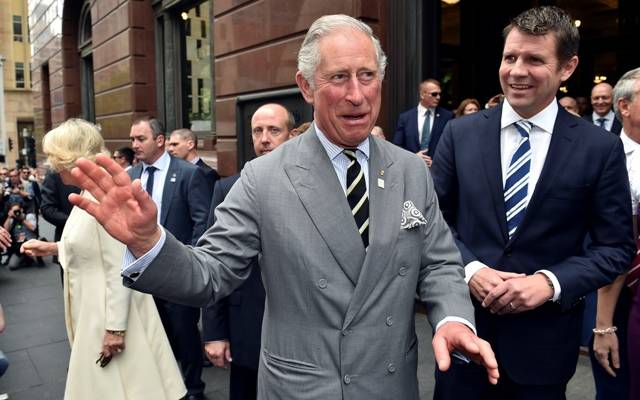The announcement follows the British Parliament’s passing in February of a legislative amendment that forbade local governments from divesting public pension fund holdings in Israeli companies.
By Dion J. Pierre, The Algemeiner
New legislation that would prohibit local UK governments from boycotting Israel was announced on Tuesday in the Queen’s Speech, an annual address highlighting the government’s upcoming priorities.
Delivered Wednesday by Prince Charles, because of Queen Elizabeth II’s unavailability for the occasion for the first time since 1963, it placed on the legislative agenda a “Boycotts, Divestment, Sanctions Bill” that “will prevent public bodies from engaging in boycotts that undermine community cohesion.”
The announcement follows the British Parliament’s passing in February of a legislative amendment that forbade local governments from divesting public pension fund holdings in Israeli companies, a step prompted by what Conservative Party MP Robert Jenrick described as the pursuit of “pseudo-foreign policies.”
Local government support for the boycott, divestment, sanctions (BDS) movement has been hotly debated in British politics for over a decade, reaching an inflection point in 2014, when the Leicester City Council, governed by the Labour Party, passed a motion to boycott products made in Israeli settlements.
The measure was challenged in court by the Jewish Human Rights Watch (JHRW), which argued that it discriminated against Jews and violated the Equality Act. But, in 2018, a High Court judge ruled that there was “nothing in context” to suggest that the resolution was “a cover or incitement to antisemitism.”
JHRW also lost legal battles to classify as antisemitic two BDS resolutions approved by city councils in Wales between 2010 and 2014 (both were later overturned by the bodies themselves). The rulings were perceived as paving the way for local governments to take similar action against Israel even if it challenged the state’s official position.
The Conservative Party promised to settle the issue during the 2019 elections, announcing in its Manifesto that it would “ban public bodies from imposing their own direct or indirect boycotts, divestment or sanctions campaigns against foreign countries.”
Action was reported as forthcoming after the Conservative Party won a landslide victory at the polls, but no legislation was passed, and last June, the Lancaster City Council voted to endorse BDS and divest 8 million pounds from Israeli companies in Judea and Samaria and those affiliated with them.
In December 2021, MP Jenrick said the government “will be working to outlaw BDS.”
Thank You, Your Majesty
Tuesday’s Queen’s Speech did include the promised legislation and, counting February’s amendment to the Public Service Pensions Bill, marked the second time in two months that the UK government has taken action against the movement to boycott the Jewish state.
On Tuesday, the Simon Wiesenthal Center (SWC) said it hopes the proposed legislation gains “bipartisan support.”
“SWC [is] grateful to Her Majesty Queen Elizabeth [and the Royal Family’s] inclusion of anti-BDS legislation in the Queen’s speech before Parliament,” the group tweeted.
Conservative Friends of Israel (CFoI), a parliamentary group, said, “We welcome the Government’s commitment to legislating against divisive BDS actions which have for too long harmed community relations here at home and the prospect of peace between Israel and the Palestinians.”
It continued, “This important legislation will once again emphasize Prime Minister Boris Johnson’s deep support for Israel and the UK’s Jewish community.”
